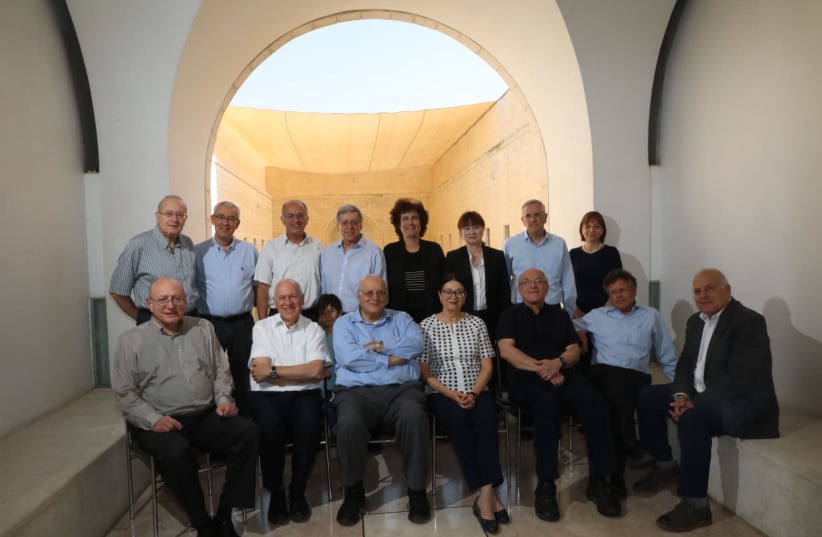High Court Justice Menachem Mazuz retired on Thursday, four years earlier than expected and without an elaborate ceremony often afforded justices who retire after serving their full term on the bench.
Mazuz stunned the legal establishment in December 2020 by announcing he would retire early, as he was expected to serve until 2025 having begun his tenure as a justice in 2014. A court spokeswoman said he was retiring for “personal reasons.”
Mazuz expressed great pride in having served on the court and in his prior decades of public service, including as attorney-general. He slammed political critics of the legal establishment for failing to understand that the electorate has a right to vote for them, but also has a right to limit politicians’ abuse of power through the courts.
The outgoing justice quoted former prime minister and Likud founder Menachem Begin, who said in 1951: “I suggest we do not settle for merely ‘independence of the law,’ but rather that the flag of our Herut party [predecessor to the Likud] stands for ‘supremacy of the law.’”
There was speculation in December that Mazuz was hoping to be replaced while Avi Nissenkorn was still justice minister, and before any new government could be formed. Mazuz and Nissenkorn were both considered part of the country’s more liberal camp.
But shortly after Mazuz’s announcement, the country spiraled into a fourth election and Nissenkorn quit, leaving the Judicial Selection Committee leaderless and unable to replace Mazuz.
Although Benny Gantz emerged as the new justice minister on Wednesday, it is unlikely that he will be able to convene the committee before the formation of a new government, by which time there will likely be a new justice minister.
Whether the country has a fifth election or a new government is formed, it is expected to take several months to replace Mazuz, as well as Hanan Melcer, who retired earlier this month.
Other speculations surrounding Mazuz’s reasons for early retirement relate to a rebuke he received in 2020 from Uri Shoham, the Representative for Complaints Against Judges, relating to his handling of a case indirectly connected to his daughter, Yael Mazuz-Harpaz.
Though Shoham concurred with Mazuz that his handling of the case had not violated conflict-of-interest principles – the connection to his daughter was deemed too remote – the watchdog said Mazuz still should have notified the parties involved about the connection.
Mazuz bristled, calling the incident part of a continued, calculated barrage by critics to tear down the legal establishment.
On several occasions, Mazuz urged his fellow justices to start rejecting government requests to perform house demolitions of the families of terrorists. He said that Israeli law on this point was at odds with international and human rights norms, and that the tactic was being overused.
Mazuz was no lightweight on security issues, always ready to defend Israeli defense moves that might receive international criticism. But having served as attorney-general, and feeling he knew security issues well, Mazuz was ready to ask detailed questions of defense officials on whether their actions were really imperative for national security.
Still, his call to end house demolitions was ignored, and with a very small number of exceptions, the High Court has continued to approve almost every IDF request for such action.
When allowing Prime Minister Benjamin Netanyahu to form a government in May 2020 despite the pending public corruption indictment, Mazuz’s “approval” was among the most scathing of all of the 11 justices.
When he was first appointed, Mazuz was perceived as a future heavyweight because he had handled so many high-profile corruption cases during his tenure as attorney-general between 2004 and 2010.
Cases he handled as attorney-general included: former prime minister Ehud Olmert, former president Moshe Katsav, former justice minister Haim Ramon, former finance minister Avraham Hirschson and former minister Shlomo Benizri.
Mazuz also had some detractors, for closing a case against former prime minister Ariel Sharon and for initially favoring a plea bargain with Katsav.
There were also mixed views on how long it took him to handle the case of former foreign minister Avigdor Liberman, though much of the delay in that case came from his successor as attorney-general, Yehuda Weinstein.
